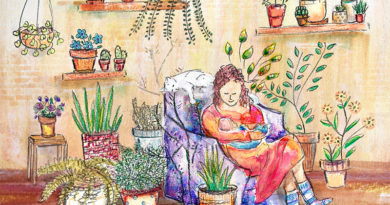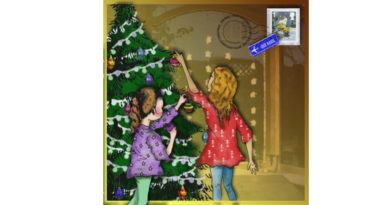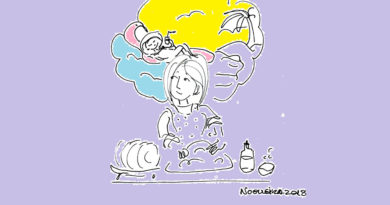Shades of Culture and a Kind Policeman

The one big thing I remember from the film “Smilla’s Sense of Snow” was that the Inuit apparently have hundreds of words for what we simply call “snow.” Now, whether this is a cliché or not probably depends on how you look at a people and their use for words. I think what it does show is that words and how they are used reflects the culture of the people using them.
Then again, there is the non-verbal aspect to communication, which was studied extensively during my studies in social anthropology with gender studies. I have always found this the most fascinating part of communicating. Take me, for instance: I have Swiss parents, and I spent my childhood living in an expat environment. For my sisters and me, this meant British schooling, because most of the places we lived in at the time only offered either British or Dutch education. I grew up speaking English to my sisters, my friends and at school but hearing Swiss-German when my parents spoke to each other, and I would speak Swiss to my grandparents on our annual visits. When I then returned to Switzerland to live (for the first time) at age twenty-three, my Swiss was a bit rusty, but still it was real enough to pass as authentic – at first, anyway.
The reactions in everyday situations, when I struggled to find a word or maybe stuttered over an unusual word in a shop, were quite de-motivating. I’d get an offish look from the shop assistant, as if there were something wrong with me. Soon I realised that if I then spoke English, there came a sense of relief, and people would be helpful and make me feel welcome again. Making friends was similar, but only to a certain point. I began to ask myself why I was finding it so hard to assimilate, make friends, and settle down in “my” country? My Swiss boyfriend at the time finally came out with the reason that I mentioned in my February article: one of his friends said that I simply laughed too much, or was it too loudly? Either way, needless to say, I was shocked and swallowed my laugh right there and then for the time being.
Back then, I decided to have a think about why and how I would approach this dilemma. I travelled and then returned a second time, to more or less settle down, seventeen years ago. As we know, it is not just the words themselves that can define nuances in meaning, it is also the shade of character and of sentiment that can colour what we want to communicate. In this sense, a word can mean so many things, e.g., “Hello” said with a smile is welcoming; but with a hint of a question, “Hello?” suggests an expectation, and demands an answer. Thus, words have multiple layers of power to evoke emotion. But of course, the type of emotion depends entirely on the cultural understanding of the speaker as well as the recipient.
In my example above, “Hello?” might put the recipient into a slightly defensive mode. A Swiss person does not appreciate confrontation generally, and often feels threatened if addressed by a stranger. An Anglo-Saxon recipient may simply take it as an invitation to explain what it is they are doing there at that point, no offense taken.
This cultural (mis-)understanding that I have come to appreciate has given me much grief. I have a friend whose children are growing up in Switzerland with Irish parents. When they speak Swiss, they understand that they have to speak quietly, and when they speak English they switch to a more active gait. In this vein, friends who have seen me jump from English to Swiss and then to High German exclaim that I am completely different when I speak English or German and then Swiss. I seem to change personality. Children learn the cultural in-between-ness and adapt accordingly. As an adult it is harder to learn, but I think it helps if we are aware of the power not only of what we say but also within the context of where it is we are saying it and to whom.
Knowing this, of course, helps to turn things in my favour, and I am in a wonderful position to manipulate how people are going to react. Just a fortnight ago, when shopping, I realised I had no change for the car park. A policeman was writing a fine for the car I’d parked behind and so I spoke in English, loud enough for him to hear (speaking loudly is of course acceptable in English). I told my daughter that I didn’t have enough change, and, “Oh dear, what are we going to do now?” The policeman turned round and held out something in his hand. I looked up at him. It was 50 Rappen for me to take. “Danke,” I said (quietly) and smiled.
By Karin Mohler
Karin has lived in between cultures for her entire life and has come to the conclusion that this will always be a big part of her. Having no roots doesn’t bind her anywhere in particular, but she is careful not to impose that sense upon her children, who have been born and bred in Switzerland. She has taken a lot of inspiration for understanding her “in-betweenness” from the book Third Culture Kids: Growing Up Among Worlds, by D. C. Pollock and R. V. Reken (2009).
Illustration by Jen Bognar.



